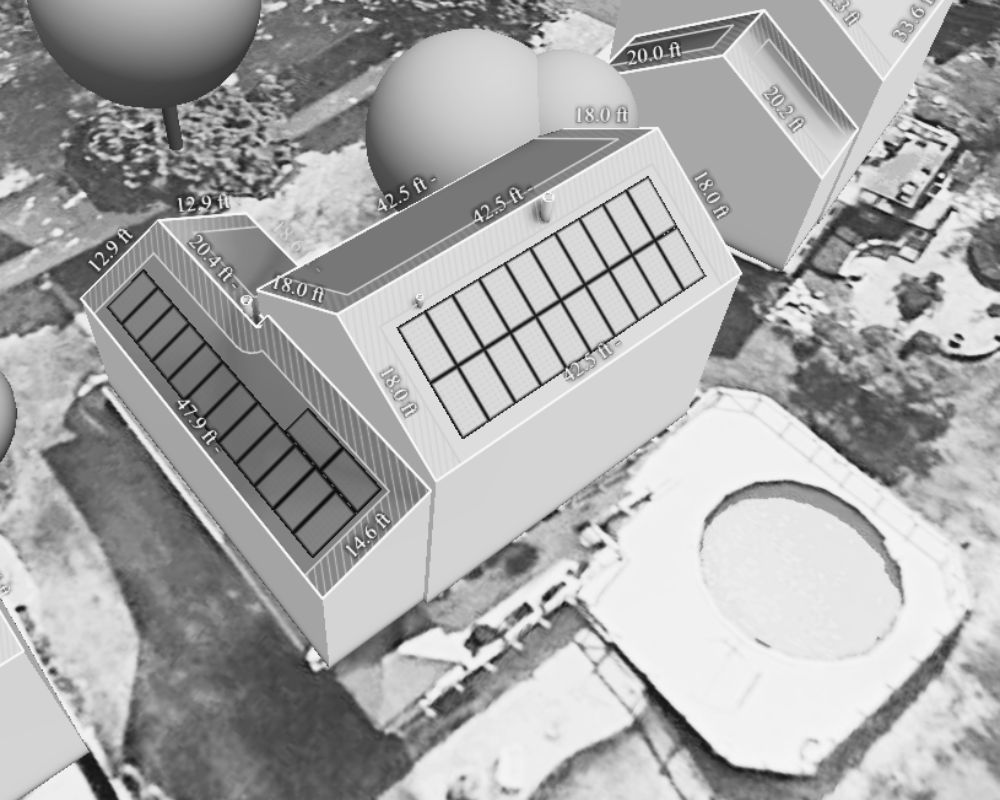We can all agree, electricity prices aren’t getting less expensive. By installing solar, you’re decreasing your reliance on the grid, which reduces expenses and minimizes the impacts of trending price increases for the 25-Year life of the system, with a look that suits upscale homes.
Solar and energy storage systems significantly enhance grid stability by smoothing out fluctuations in energy supply and helping to manage peak demand, which is appealing to electric grid operators. This rebate helps offset the upfront costs for a project by providing a cash rebate based on kW DC size (solar) and kWh capacity (battery).
With Illinois’ solar policies at their strongest, there’s never been a better time to leverage solar. Ready to learn more? Let’s talk.
"*" indicates required fields
Our process starts with a complementary front-end site analysis, where we gather every crucial detail—energy consumption trends, electrical infrastructure, structural and roofing assessments, architectural details, irradiance and shade mapping, and even high-precision drone measurements.


We use a multitude of tools and processes to accurately develop projects, such as satellite imagery, LIDAR, aerial drone photos & simulated drone measurement flights, and the most advanced solar design software on the market.

Every solar installation is custom built to your property and architecture to fit your needs, so depending on the size, scope, jurisdiction, and complex, project timelines can be variable.
What to Expect:
Once both parties agree to move forward with the project, our team gets to work immediately. Some early stages of onboarding include Structural Measurements, ComEd Net Metering and Interconnection Application, Permitting & Engineering, and initial stages of Incentive Applications.
Pro Tip:
Submitting an Interconnection Application with the utility prior to onboarding can be helpful with identifying any additional utility interconnection costs that may come up.
What to Expect:
Engineering & Permitting is often the most detailed and time-consuming phase of the entire project. Our engineering team will conduct structural calculations, electrical diagrams, and cross reference with applicable code requirements for the AHJ (Authority Having Jurisdiction), typically the village or county where the project is located.
Scheduling a site assessment in the early stages of project development will help streamline this process by eliminating unforeseen project hurdles.
What to Expect:
Once the permit plans are completed and stamped by a licensed engineer, our team will email all documents for your approval prior to submission. Once approved, we will submit all applicable documents to the AHJ for review and approval.
Pro Tip:
An installation partner well versed in applicable code requirements and local AHJ requirements typically improves permit approval turnaround times.
What to Expect:
As soon as the permit is approved by the AHJ, our team begins preparation of final materials and coordinating the installation date. In the days leading up to construction, we’ll keep a close eye on the weather and communicate any schedule adjustments as needed. Depending on the size and scope of the project, the physical solar installation is usually one of the quickest parts of the project.
Pro Tip:
It’s important to communicate any particulars regarding business operation ahead of time so all parties can plan accordingly.
What to Expect:
On the final day of installation, our team will reach out to the AHJ to schedule the final inspection. Once the installation is inspected and approved by the AHJ, we still have another final step before formal commissioning. The local utility must review the inspection approval letter prior to granting Permission to Operate (PTO), which is undoubtedly the most exciting part of the entire process.
Pro Tip:
It’s important to ensure that all aspects of your facility are up to code when an inspector is onsite to avoid any delays of solar inspection approval.